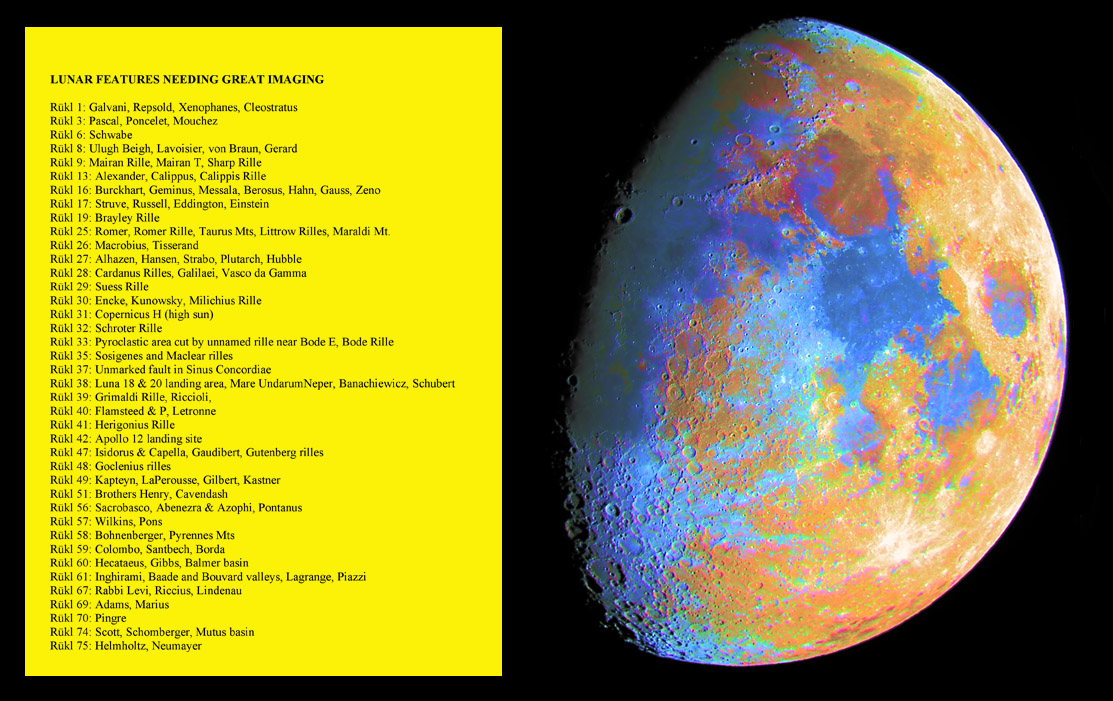August 25, 2012
Orange And Blue Moon

image by Jan Sonnvik
Although this LPOD was originally published on Feb 15, 2006, more than 6 years ago, most of the targets listed still await a great image!
The best lunar imagers on Earth contribute to LPOD; their exceptional images appear day after day. Surely every place on the nearside is now imaged in exquisite detail under multiple lighting conditions. Wrong. Many familiar places – Copernicus, Plato, Clavius, etc – are being imaged so frequently that one would think that we are still searching for changes. Each of those images represents a personal best, but there are many other lunar features that we know hardly at all. I present this list of targets for shooters who want the challenge of wild, little explored places. And in the process of stalking these elusive quarry I am confident that more of the best images ever will be obtained, and that new domes, faults and other oddities will be discovered. And someday, when all the nearside is as familiar as our backyards, perhaps some of LPOD’s younger contributors will send us images from the surface.
Chuck Wood
Technical Details
This remarkable orange and blue Moon represents other avenues for exploration. Color imaging can reveal surface composition differences, and can artistically show our sister world in new perspectives.
Jan Sonnvik writes, I wanted to record the subtle color differences on the Moon, due to e.g. differences in titanium content of lunar maria. The resulting image shows the blue mare areas rich in titanium, and the red titanium-depleted mare basalts. This is especially evident on the blue plains of Mare Tranquillitatis, contrasted by the red deposits in Mare Serenitatis. The orange colored areas should generally correspond to lunar highland material. The original image is an LRGB composite obtained with a Canon 20Da DSLR and a Celestron NexStar 11GPS telescope, operating at an image scale of 0.8″/pixel. The RGB color information is a mean of 30 individual exposures, while the luminance (L) is from a single 1/500 sec exposure. No filters were used. I’m located in Dalby, southern Sweden.
Yesterday's LPOD: Lava Ocean And Crater Interactions
Tomorrow's LPOD: A Small Step for a Man, but Mankind Failed To Follow
COMMENTS?
Register, Log in, and join in the comments.



